Promoting Waste Segregation and 3Rs — Environmental Education by JICA Volunteer Mr. Uchiyama
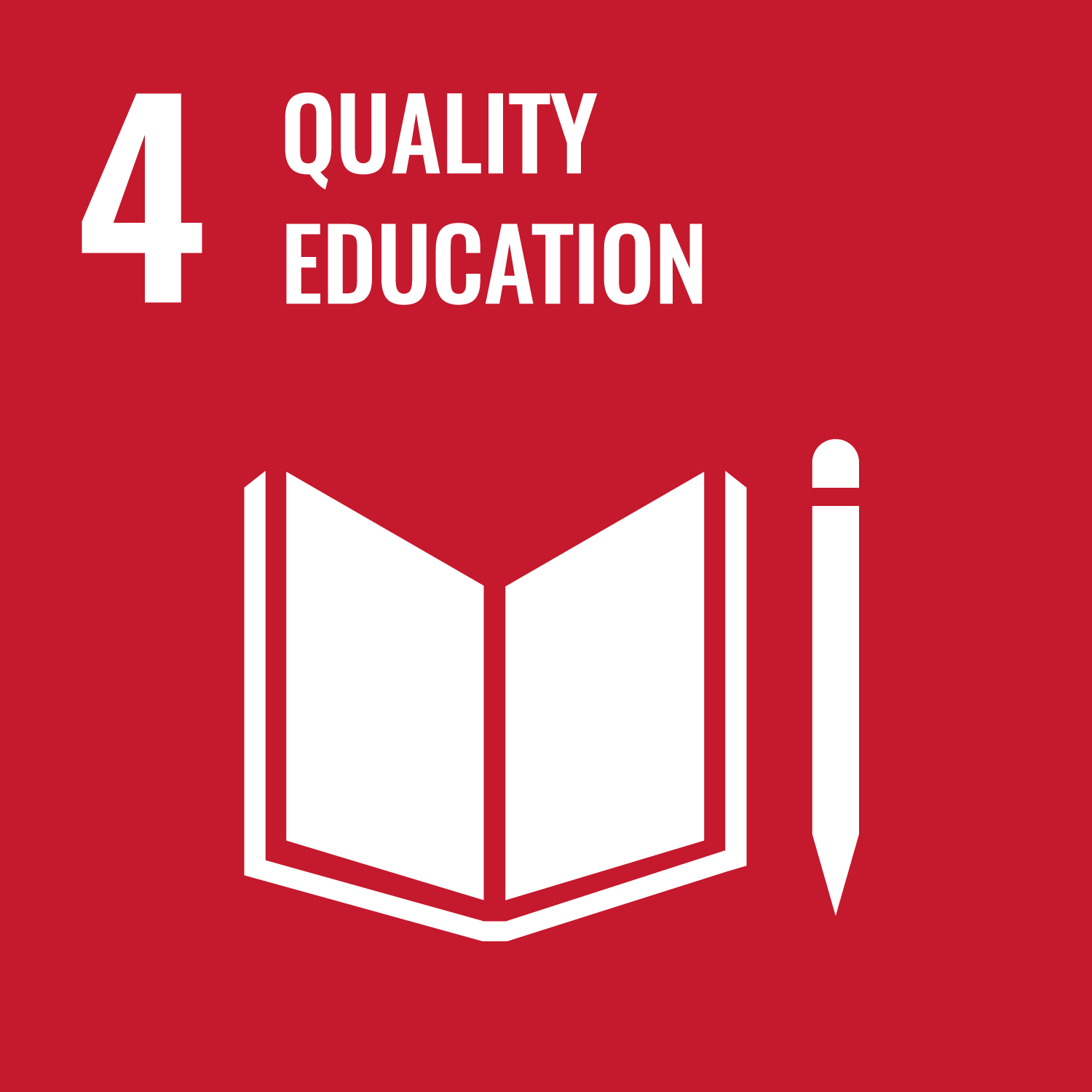
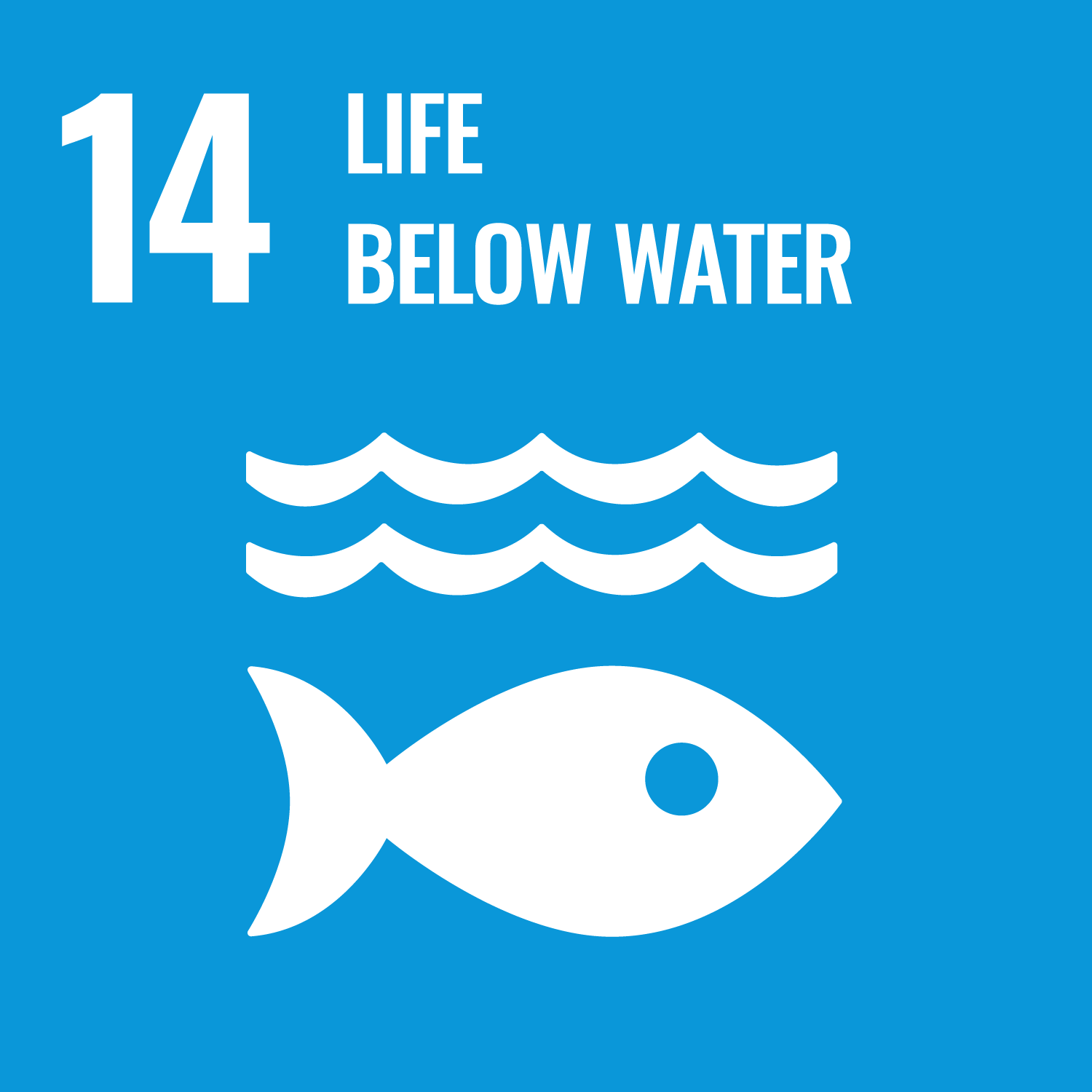

2024.10.09
Mr. Uchiyama, a JICA Volunteer (Youth Activities, 2023 Batch 1), has been conducting waste segregation and 3R (Reduce, Reuse, Recycle) awareness activities while teaching English, mathematics, and science at Sogeri Primary School in Central Province. Waste management is an urgent issue in Pacific Island countries, including Papua New Guinea, and promoting waste reduction and reuse at the community level is considered essential. However, environmental education is not yet widely practiced in local schools, and at Sogeri Primary, waste was often discarded in schoolyards and rivers.
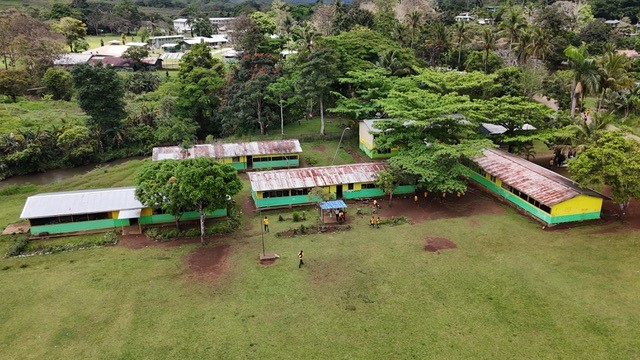
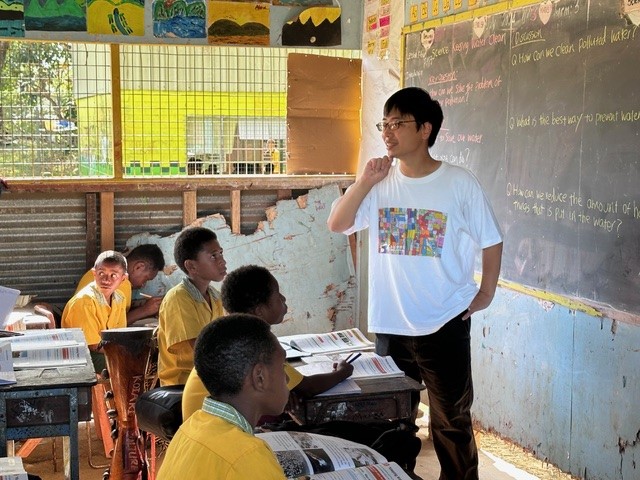
To address these challenges, Mr. Uchiyama is implementing various initiatives to promote the importance of waste segregation and 3Rs through environmental education.
1. Installation of Waste Bins
On August 29, 2024, JICA donated three types of waste bins to Sogeri Primary School. The bins were color-coded for different types of waste: yellow for plastic, black for bottles and cans, and green for organic waste. The students are gradually adopting the habit of correctly sorting waste.
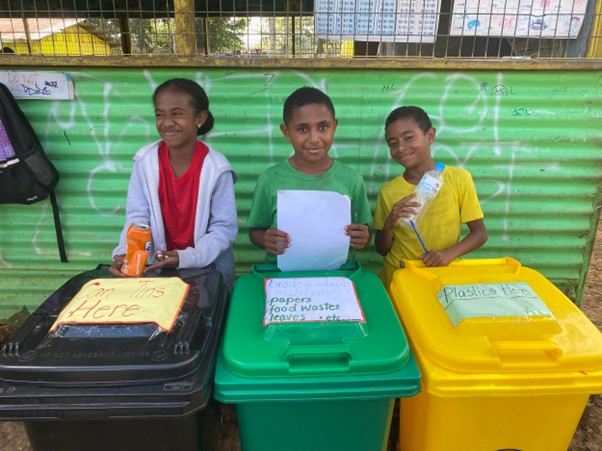
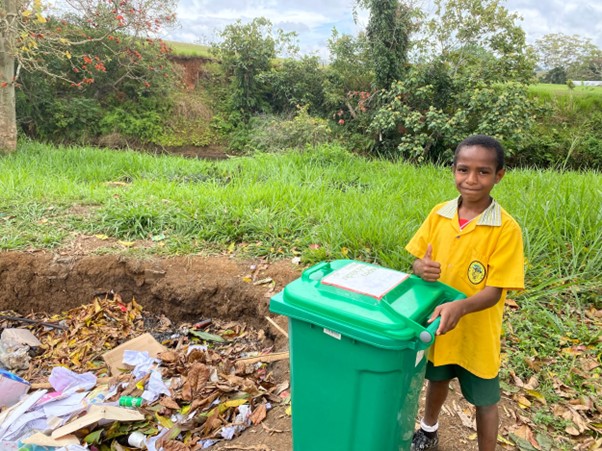
2. Kamishibai Storytelling: “Poipoi and the Garbage Monster”
Using a Kamishibai (picture card storytelling) titled “Poipoi and the Garbage Monster,” created by a previous volunteer, Mr. Uchiyama teaches students about the environmental impact of littering. Through the visual storytelling of Kamishibai, the students learn the importance of protecting the environment from a relatable perspective.
※Kamishibai is a traditional Japanese storytelling method that uses illustrated cards shown in sequence while a narrator tells the story. It visually engages audiences, making it an effective way to teach lessons, especially for children.
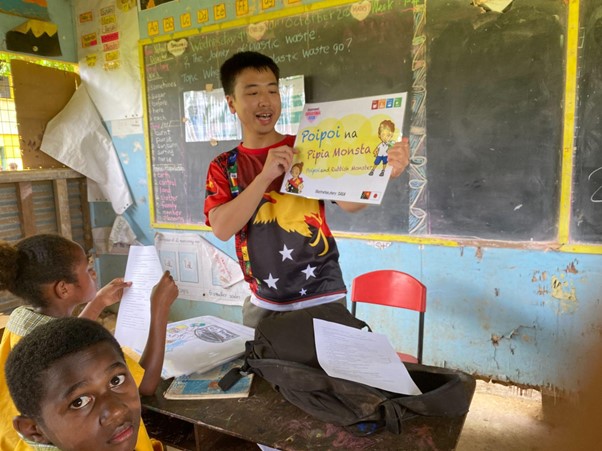
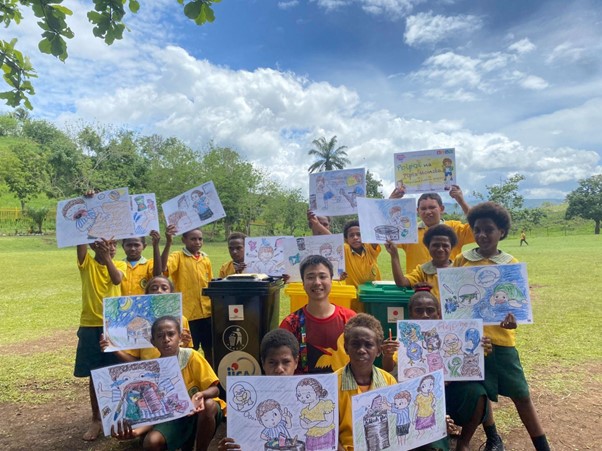
3. Video-Based Lessons
In science classes, Mr. Uchiyama utilizes video materials developed by JAMSTEC (Japan Agency for Marine-Earth Science and Technology) to teach students how littered plastic waste is carried by wind and rain into rivers and oceans, eventually breaking down into microplastics and contributing to marine pollution. The students learned how plastic waste can be harmful to marine life, with many animals mistakenly ingesting plastic as food, which can lead to their death. This knowledge deeply impacted the students, prompting many to become more conscious about properly disposing of waste in bins.
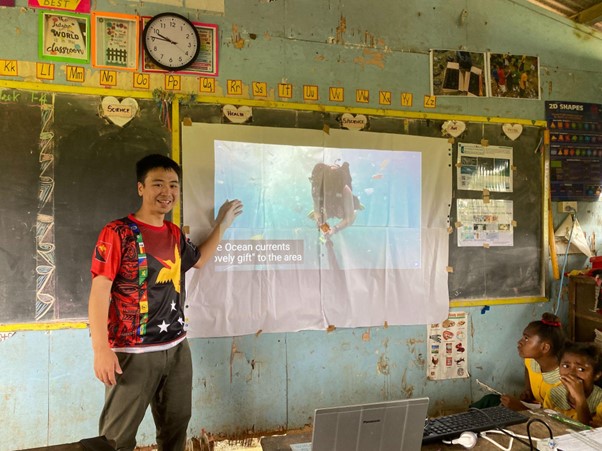
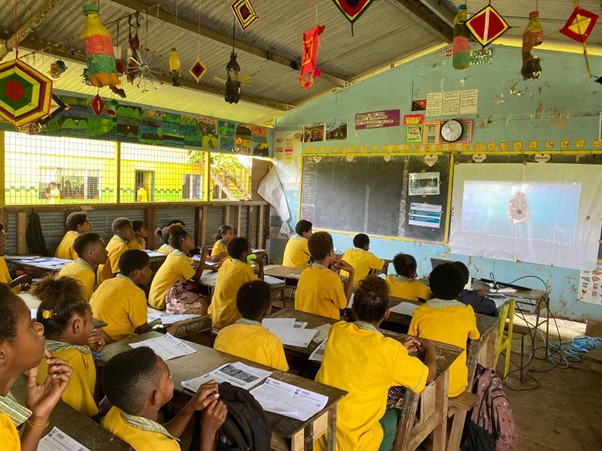
Today, students at Sogeri Primary School are beginning to develop the habit of throwing waste into the correct bins, and teachers have expressed positive feedback, saying, “Lessons using storybooks and videos are easy for children to understand and are very effective.” Additionally, in art classes, students are creating projects using discarded cans and plastic bottles, helping reinforce the concept of the 3Rs.
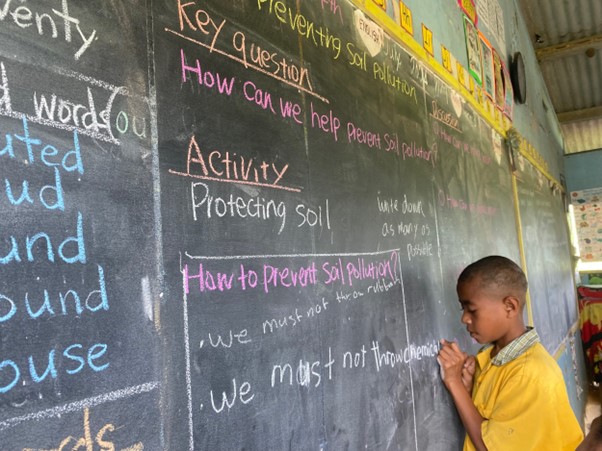
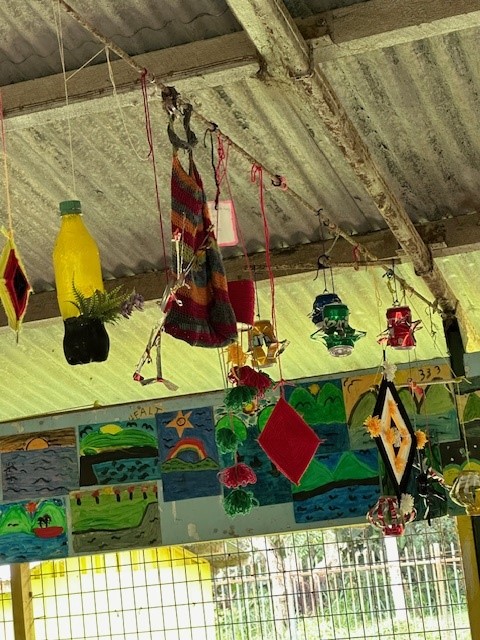
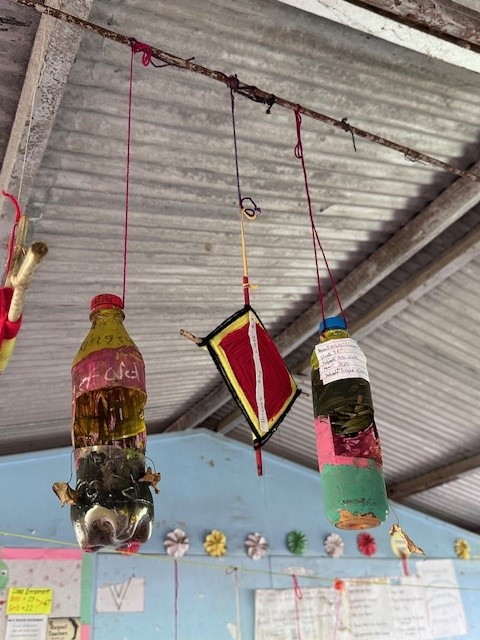
Looking ahead, Mr. Uchiyama is planning field trips with students to a landfill and recycling center in Port Moresby, as part of his ongoing efforts to promote environmental education.
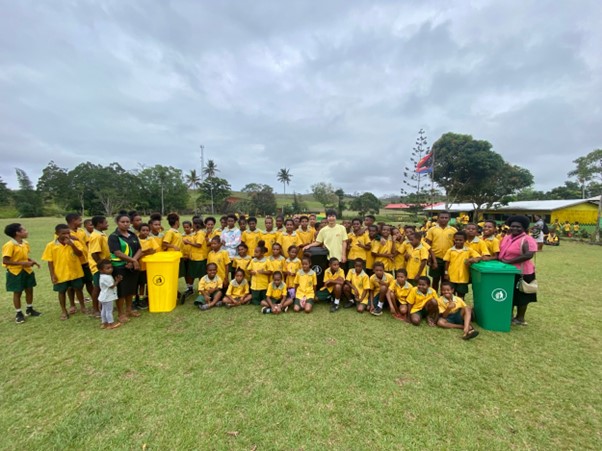
Please also visit our Facebook for our latest activities and events news.
JICA Facebook Page
scroll